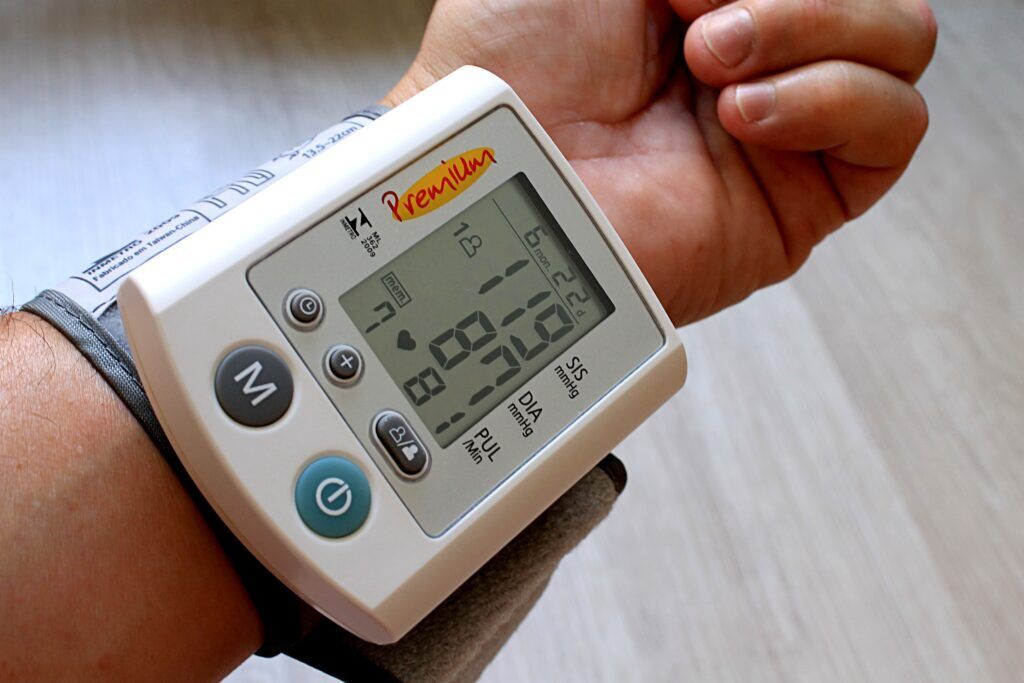Key Takeaway:
- Abusive drinking can have severe consequences on physical and mental health: Regular excessive drinking can lead to liver disease, heart disease, cancer, and mental health issues such as depression and anxiety.
- Abusive drinking can have negative impacts on personal relationships and social interactions: Heavy alcohol use can lead to conflicts with family members, friends, and coworkers, and can cause social isolation and withdrawal.
- Abusive drinking carries legal consequences: Drinking and driving, public intoxication, and underage drinking are all illegal and can result in fines, license suspension, and even jail time.
Alcohol addiction troubling you? You’re not alone! Over-indulging can have terrible effects. Not just on your body and brain, but also your family and work. Learn about the risks of too much drinking. And get the help you need to stop.
Short-Term Health Risks of Abusive Drinking
Abusive drinking can have severe health impacts that could be dangerous. When someone drinks too much, they put their body at risk. A few of the short-term health dangers of abusive drinking are: dehydration, alcohol poisoning, liver damage and increased risk of accidents and injuries.
Dehydration happens when alcohol lowers the body’s capacity to keep water, causing symptoms like a dry mouth, dizziness, and exhaustion. Alcohol poisoning is a serious condition that can cause seizures and breathing trouble. The liver is the organ in charge of breaking down alcohol, and excessive drinking can bring about acute liver damage. Moreover, abusive drinking can raise the risk of accidents and injuries due to bad judgment and lack of coordination.
If you or anyone you know is experiencing any of these short-term health risks due to alcohol abuse, it is important to get medical help quickly. Additionally, getting professional help to manage alcohol abuse is essential to stop long-term health consequences.
Long-Term Health Risks of Abusive Drinking
Abusive drinking can have serious, long-term health consequences that may be irreversible. These are some of the effects:
- Liver damage: Cirrhosis, a liver disease, can lead to liver failure and death. Heavy drinking causes inflammation and scarring of liver tissue.
- Brain damage: Alcohol abuse can cause brain damage, leading to cognitive impairment and memory loss. The brain shrinks and loses neurons, which affects learning and concentration.
- Cancer: Abusive drinking increases the risk of certain types of cancer, such as liver, breast, colon and esophageal cancers. Alcohol damages DNA in cells, causing tumor growth and cancer.
- Heart disease: Abusive drinking can lead to high blood pressure and heart disease. Long-term alcohol abuse weakens heart muscles, increases blood pressure and can lead to fatal heart conditions.
If someone you know is struggling with abusive drinking, seek help to address the problem and avoid these long-term health risks.

Mental Health Conditions Caused by Abusive Drinking
Abusive drinking can have serious consequences. It can change the brain’s chemistry and cause mental health issues. Anxiety and depression are two common problems that can happen due to long-term drinking. Memory and attention span can suffer too. Alcoholism can even lead to psychosis, including schizophrenia. It’s not just the amount drunk, but also the frequency and pattern of drinking, that affect mental health. Getting help and treatment for alcoholism can reduce risk and help restore well-being.
Signs and Types of Dependence on Alcohol
Alcohol dependence is a major problem that affects millions of people around the world. These are some signs to watch out for:
- Increased tolerance: needing more alcohol to feel the same effects.
- Withdrawal symptoms: feeling symptoms like nausea, sweating, and tremors when you decrease or stop drinking.
- Loss of control: having difficulty limiting how much you drink or stopping altogether.
- Neglecting responsibilities: not being able to do your job, school, or other important things due to alcohol.
There are two types of dependence on alcohol:
- Physical dependence happens when the body needs alcohol to work properly. When someone stops drinking who is physically dependent, they can experience withdrawal symptoms like shaking, sweating, and seizures.
- Psychological dependence is when someone depends on alcohol emotionally and mentally. They may think they need alcohol to deal with anxiety and stress.
Recognizing the signs of alcohol abuse and understanding the types can help people get help and avoid the bad effects of too much drinking.

Alcohol Withdrawal and Treatment Options
Alcohol withdrawal is a tough and dangerous situation facing those who have been drinking heavily for a while, and those who suddenly quit or drastically reduce alcohol intake. Symptoms include trembling, convulsions, visions, high blood pressure and worry.
To treat alcohol withdrawal, medical detoxification, counselling, behavioural therapy and medication therapy are available. Medical detoxification is the best way to tackle serious withdrawal symptoms, and typically involves taking drugs to lessen the symptoms and make sure recovery is secure and comfortable. Counselling and behavioural therapy can also help, by dealing with the psychological facets of alcoholism and aiding the patient overcome any psychological problems that may have led to excessive drinking.
To sum up, the results of abusive drinking are extreme and long-lasting. Seeking help for alcoholism before reaching the withdrawal stage can decrease the chances of severe withdrawal symptoms, and increase the chances of a successful recovery.
Some Facts About The Consequences of Abusive Drinking:
- ✅ Abusive drinking can lead to liver damage, cirrhosis, and other chronic health problems. (Source: National Institute on Alcohol Abuse and Alcoholism)
- ✅ Excessive alcohol consumption is a leading cause of preventable deaths in the United States. (Source: Centers for Disease Control and Prevention)
- ✅ Alcohol abuse can contribute to mental health issues such as depression, anxiety, and suicidal thoughts. (Source: National Institute on Alcohol Abuse and Alcoholism)
- ✅ Drinking and driving can lead to serious accidents and fatalities. (Source: National Highway Traffic Safety Administration)
- ✅ Abusive drinking can have negative impacts on relationships, social life, and work or school performance. (Source: National Institute on Alcohol Abuse and Alcoholism)
FAQs about The Consequences Of Abusive Drinking
What is considered abusive drinking?
Abusive drinking is a pattern of drinking that results in harmful physical, mental, or social consequences. It’s commonly defined as consuming more than four drinks in a single sitting for women or more than five drinks for men, or regularly consuming large amounts of alcohol over time.
What are the consequences of abusive drinking?
Abusive drinking can have a range of negative consequences including health problems, social problems, and legal problems. Health problems may include liver damage, high blood pressure, and increased risk of certain cancers. Social problems may include strained relationships, job loss, and financial difficulties. Legal problems may include DUIs and other alcohol-related offenses.
Can abusive drinking lead to addiction?
Yes, abusive drinking can lead to addiction. When alcohol consumption becomes compulsive and interferes with daily life, it’s considered alcohol use disorder (AUD). Symptoms of AUD include an inability to quit drinking, difficulty controlling the amount of alcohol consumed, and continued drinking despite negative consequences.
What is binge drinking?
Binge drinking is a form of abusive drinking that involves consuming a large amount of alcohol in a short period of time, typically within two hours. For women, binge drinking is typically consuming four or more drinks in a single sitting. For men, it’s typically consuming five or more drinks in a single sitting.
What are the short-term effects of binge drinking?
The short-term effects of binge drinking can include slurred speech, impaired judgment, memory lapses, loss of coordination, and increased risk of accidents, falls, and injuries. In extreme cases, binge drinking can lead to alcohol poisoning, which can be lethal.
How can abusive drinking be prevented?
Abusive drinking can be prevented by practicing responsible drinking habits, setting limits on alcohol consumption, avoiding peer pressure, and seeking help if necessary. Other preventative measures include seeking support from friends and family, attending counseling or support groups, and avoiding situations where alcohol is present if you’re trying to quit drinking.
















